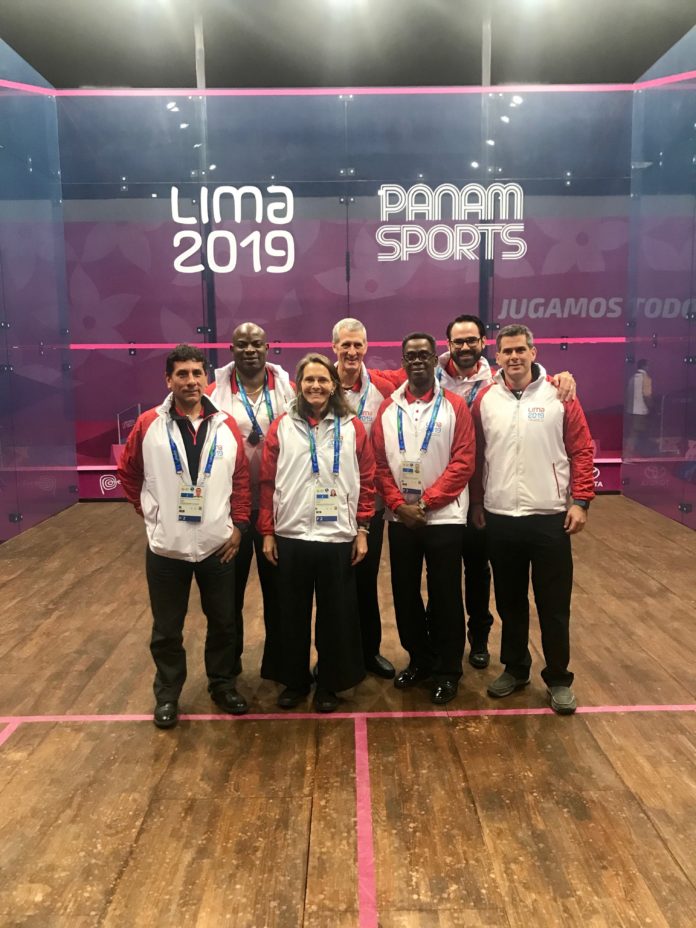By Hope Prockop
Four years ago, my deep dive into refereeing began. I attended a US Squash coaching course where I met some like-minded squash addicts. We shared ideas and best practices on technique, lesson development and match play.
The course touched on refereeing, though, and it was just enough to intrigue me. I hadn’t previously given much thought to the relationship between players and referees, except that as a long-time player, I’d had a few unfavorable encounters with referees. I believed refereeing was like cleaning up after the party: a job that had to be done and it was usually done by the loser. I was an avid player and coach, and a certified Club Level referee, but after the coaching course I wanted to take my officiating capabilities to the next level. I didn’t see any women participating in refereeing and I wanted to be the change.
Initially, I felt nervous showing an interest in refereeing. However, I was relieved that my inquiry resulted in an enthusiastic response. US Squash wants to build the world’s premier refereeing program and to have officials who proudly represent the U.S. at home and abroad. I felt welcomed by the program, and it was clear that refereeing need not take the place of my playing or coaching, but instead those elements would be strengthened through my engagement in officiating training.
Like with many things, growth has come from getting out of my comfort zone. I’ve had matches that have exposed me to almost every rule violation in the book: blood, blocking, conduct, coaching, injury and more. I’ve had friends make nasty remarks. I’ve seen players not report their own tins and double bounces. These experiences are the exceptions to the rule, however; the upsides are considerably more numerous—some of which follow in this piece.
Officiating at a high level is very rewarding. Sportsmanship has become a top priority for US Squash. This commitment has improved the energy and tone at accredited tournaments. I enjoy the friendships amongst the referee team. I love to see the game played and be a part of its growth. Squash competition, coaching and now refereeing has taken me all over the world.
In the US Squash referee program, we are constantly under surveillance, but it’s the best kind. We review and submit assessments of SquashTV matches, and we attend clinics during major tournaments. The clinics help us understand nuanced situations and the part referees play in the implementation of safe, fair and continuous play. The discussions in these clinics are eye-opening and educational as we review every aspect of those split-second scenarios—the ones that test us and teach us.
To build my referee resume, I officiate at junior and collegiate competitions, the National Singles and the U.S. Open and other PSA events. This summer, I represented the U.S. as a referee at the Pan American Games in Lima. I was the only female referee and the only first-timer at the Pan Am Games out of a group of twenty-seven officials. As Team USA players took the podium to receive their gold medals, I reminisced about my time as a player on two previous U.S. Teams (including a 2006 Pan Am gold medal-winning team) but I simultaneously felt proud to now represent my country as a referee. I refereed TK matches in Lima. It felt like my own version of a gold medal. I would encourage other players—of all levels—to consider pursuing refereeing certification and joining our team. If you want to chat, I’d be happy to persuade you.


